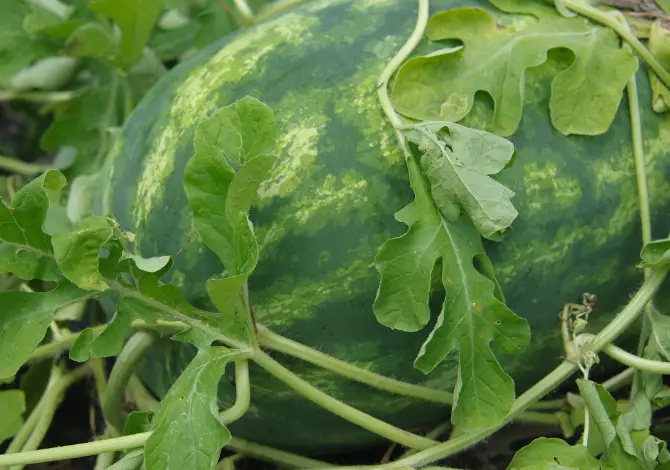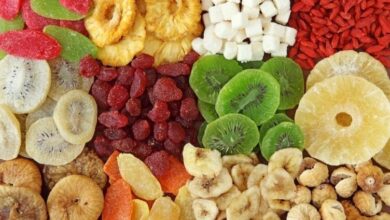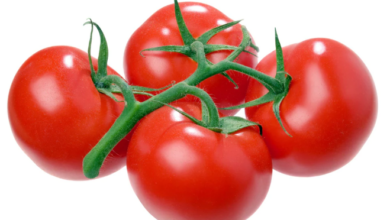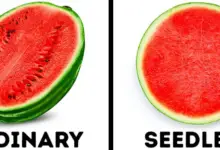Are Watermelon Leaves Edible and Safe to Eat?

Watermelon leaves are a common sight in many gardens, but are they edible? It might surprise you to learn that watermelon leaves are not only edible, but can be quite nutritious. In fact, they have been used as food and medicine for centuries in many cultures around the world. In this article, we’ll explore what makes watermelon leaves so good for you and how to prepare them for eating.
Watermelon leaves (Citrullus lanatus), also known as lobed foliage, have a large and rough texture. These leaves typically have three to seven lobes, each with a pointed tip. Its size can reach up to 8 inches (20 cm) long and 6 inches (15 cm) wide and are arranged alternately on the stem.
They play an important role for photosynthesis—the process in which plants produce energy from sunlight—and for transpiration—the way plants lose water through their leaves. In traditional medicine, these leaves are used for its diuretic and anti-inflammatory properties.
Table of Contents
- Are Watermelon Leaves Edible?
- Nutritional Benefits of Eating Watermelon Leaves
- Health Benefits Of Eating Watermelon Leaves
- Preparation and Consumption Tips
- How to Prepare Watermelon Leaves for Eating
- Ways to Incorporate Watermelon Leaves into Meals
- Potential Risks Associated with Eating Watermelon Leaves
- Conclusion
Are Watermelon Leaves Edible?
Yes, watermelon leaves are technically edible and have been used for culinary purposes in some cultures. Young, tender watermelon leaves can be cooked and eaten similarly to spinach or other leafy greens and prepared a variety of ways, such as sautéed, stir-fried, or boiled.
However, it’s important to note that not all watermelon varieties are safe for consumption; some contain cucurbitacins which can be toxic in high amounts. Therefore, it’s essential to choose the right variety of watermelon leaves and prepare them properly before consuming them.
Nutritional Benefits of Eating Watermelon Leaves
Watermelon leaves provide many benefits to your health when eaten in moderation. Here are some of the key nutritional advantages:
- Vitamins: Watermelon leaves are a great source of vitamins A and C, which help maintain healthy skin and eyes, as well as a robust immune system.
- Minerals: They contain beneficial amounts of potassium for regulating blood pressure and maintaining heart health, plus calcium for strong bones and teeth.
- Antioxidants: Watermelon leaves are an excellent source of antioxidants. This can help protect cells from free radical damage, which may reduce the risk of chronic diseases such as cancer or heart disease.
- Diuretic properties: The diuretic properties in watermelon leaves can stimulate urine production and promote the excretion of excess fluid from the body, making them beneficial for those with kidney issues or prone to water retention.
- Anti-inflammatory properties: Some studies indicate anti-inflammatory properties in watermelon leaves that may be useful for certain medical conditions like arthritis and inflammatory bowel disease.
Watermelon leaves can offer many nutritional benefits when consumed in moderation. Adding this unique food to your diet can provide vitamins, minerals, antioxidants, diuretic effects, and potential anti-inflammatory benefits that all contribute to a healthier lifestyle.
Health Benefits Of Eating Watermelon Leaves
Eating watermelon leaves has many health benefits, including:
- Helps with digestion – Watermelon leaves contain a mild laxative that aids in healthy digestion. Steaming or boiling the leaves for 10 minutes before consuming them provides maximum benefits. These boiled leaves can also be added to soups or teas.
- Relieves constipation – By helping with digestion, watermelons and their respective leaves also help relieve constipation. Drinking a tea of boiled watermelon leaf regularly will work wonders within a day or two.
- Rich in antioxidants – Packed with powerful antioxidants, watermelon leaves help fight free radicals and protect cells from damage which could otherwise cause various diseases like cancer, heart disease, and Alzheimer’s disease.
- Boost the immune system – Watermelon leaves contain certain compounds which enhance immune system functioning, protecting the body from colds, flu and other bacterial infections.
- Reduce inflammation – The flavonoids found in watermelon leaves have anti-inflammatory properties that reduce swelling and pain as well as reduce redness, itching, or irritation due to sunburns or insect bites.
Watermelon leaves have many potential health benefits, making them a great addition to your diet. Keep in mind, however, that it is important to choose the right variety of watermelon and prepare it properly before consuming it.
Preparation and Consumption Tips
Preparing and consuming watermelon leaves requires some caution:
- Choose the right variety: Certain types of watermelon may contain cucurbitacins, which can be toxic in large amounts. Make sure to select a variety that is safe for consumption.
- Clean thoroughly: Always rinse the leaves under cold water to remove dirt and debris before cooking them.
- Cook thoroughly: Cooking the leaves thoroughly can help neutralize any potentially harmful compounds they may contain. Boiling, sautéing or stir-frying are all acceptable methods.
- Moderate consumption: While beneficial in moderate amounts, eating too many watermelon leaves can lead to digestive problems and other health issues. So make sure to enjoy them in moderation.
How to Prepare Watermelon Leaves for Eating
Preparing Watermelon Leaves for Eating:
- Choose young, tender leaves – they are less bitter and more palatable.
- Clean thoroughly by rinsing under cold water to remove dirt and debris.
- Cut them into small pieces, making them easier to cook and eat.
- Boil, sauté, or stir-fry in a little oil until tender.
- Season with salt, pepper, or other herbs and spices to taste.
By following these steps, you can prepare delicious, nutritious watermelon leaves that can be enjoyed as part of any meal.
Ways to Incorporate Watermelon Leaves into Meals
Here are some ideas for incorporating watermelon leaves into meals:
- Salad: Use watermelon leaves as a base for a fresh and flavorful salad, topped with other vegetables, fruits, nuts, and seeds.
- Stir-fry: Add chopped watermelon leaves to a stir-fry with other vegetables and protein sources, like tofu or chicken.
- Soup: Use boiled watermelon leaves as a flavorful addition to soups and stews.
- Side dish: Serve sautéed watermelon leaves as a tasty and nutritious side dish to accompany main meals.
- Smoothie: Add a handful of young watermelon leaves to a fruit smoothie for an extra boost of vitamins and minerals.
Potential Risks Associated with Eating Watermelon Leaves
Here are a few things to keep in mind:
- Toxicity: Some varieties of watermelon leaves contain cucurbitacins, which can be toxic in high amounts. Care should be taken to ensure the right variety is chosen and prepared properly.
- Allergies: As with any food, some people may have an allergic reaction to watermelon leaves. Seek medical attention if itching, hives, or difficulty breathing occurs after consuming them.
- Interactions with medications: Watermelon leaves may interact with certain medications like those used to lower blood pressure and treat diabetes – it’s best to consult a healthcare professional before consuming them.
- Digestive issues: Eating too many watermelon leaves at once can cause digestive problems like diarrhea or stomach cramps – cooking them thoroughly helps reduce these risks.
- Pesticide residue: As with any plant food, watermelon leaves may contain pesticide residue if not grown organically – wash them thoroughly before eating to minimize exposure.
Watermelon leaves can provide a range of nutritional benefits but must be consumed in moderation and proper precautions taken for safe consumption.
Conclusion
Watermelon leaves are edible but should be consumed in moderation. They provide a range of nutritional benefits and can be enjoyed as part of any meal.
However, it is important to take precautions when preparing and eating them, such as choosing young and tender leaves, washing them thoroughly, cooking them properly, and avoiding large amounts at one time. With these tips in mind, watermelon leaves can be enjoyed as part of a healthy and balanced diet.







